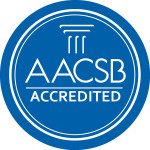 Business schools around the world often pursue professional or programmatic accreditations, and one of the most prestigious options available to these schools is that of the AACSB. The Association to Advance Collegiate Schools of Business International is one of the leading accrediting bodies for business schools around the world, with a history in programmatic accreditation that stretches back to its founding in 1916. Though the organization originally started by accrediting only business schools in North America, today it works with schools of business on every continent to help them develop and maintain quality management education programs at all levels of study.
Business schools around the world often pursue professional or programmatic accreditations, and one of the most prestigious options available to these schools is that of the AACSB. The Association to Advance Collegiate Schools of Business International is one of the leading accrediting bodies for business schools around the world, with a history in programmatic accreditation that stretches back to its founding in 1916. Though the organization originally started by accrediting only business schools in North America, today it works with schools of business on every continent to help them develop and maintain quality management education programs at all levels of study.
Ivy League Roots: A History of Prestige
The Association to Advance Collegiate Schools of Business was founded in 1916 by a small group of universities, composed largely of Ivy League institutions and several of the most prestigious public universities in the United States. This group of higher education institutions believed that they could help create a better management education environment by creating a strong set of core educational standards, advocating for their adoption at schools around the country, and then lending their accreditation to those schools as a mark of high-quality educational standards and experiences. It took the group of universities approximately three years to create their core beliefs and educational principles, with the first accreditations released in 1919. Since that first round of accreditations, the organization has grown by leaps and bounds.
Today, the accrediting body is staffed as a large, multinational organization with members including established professors, practicing managers, and seasoned experts in management theory. Though the Association to Advance Collegiate Schools of Business has grown in terms of of its size and membership, it still only accredits between 5 and 10 percent of the world’s business programs. These programs are considered to be the most prestigious business programs internationally, and they often represent the “gold standard” for students pursuing a career in business academia.
Accrediting Focus: Beyond Classroom Theory
While many programmatic accrediting bodies focus on the classroom theory and academic rigor of a given degree program, the AACSB has long believed that this is only a single component of a broader education to both business students and the larger business community. Since the earliest days of its accrediting activities, the group has believed that a rigorous classroom environment must be paired with a strong commitment to faculty research that furthers the advancement of business and management concepts. Today, the group lends its accreditation only to universities that have a strong business research program. Schools must demonstrate that they are committed to researching management theory, publishing scholarly research to leading journals, and determined to use their academic resources to change the ethical and competitive nature of business.
The group also has a few other standards that its member institutions must meet, including a commitment to selective program admissions for top-performing students. It is for this reason that almost all schools with the organization’s accreditation require undergraduate students to apply separately for business school admissions. Likewise, these schools are known for having some of the most stringent GMAT or GRE test score requirements and some of the highest baseline scores of admitted applicants.
A Strong Accrediting Body for Management Education
It isn’t easy to gain the approval and accreditation of the Association to Advance Collegiate Schools of Business International. In order to gain this prestigious seal of programmatic approval, schools must prove to the AACSB that they are committed to scholarly research and publishing, high standards of candidate admission, and devotion to the best practices and concepts of modern management education in all of their various degree programs.
